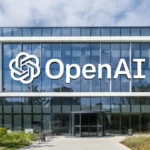Key Points:
- Microsoft partners with Etisalat to build a 5G standalone network in the Middle East, following a similar deal with AT&T in 2021.
- Microsoft’s Azure Operator Nexus platform, combining cloud and AI technologies, offers support to telecom operators, minimizing operational challenges.
- The success of AT&T and Etisalat has strengthened Microsoft’s position in the global telecom market.
- Microsoft joins the AI RAN Alliance, highlighting its commitment to incorporating AI into connectivity technology.
Microsoft’s strategic move to challenge telecom equipment giants like Huawei is gaining momentum, as the tech giant recently secured a deal to assist in developing a 5G standalone network in the Middle East. The agreement with Abu Dhabi-based Etisalat marks a significant step for Microsoft in expanding its presence in the telecom infrastructure space, positioning itself against industry leaders like Huawei, Ericsson, and Nokia.
Microsoft’s announcement revealed its collaboration with Etisalat, also known as e&, to build a 5G network across the United Arab Emirates. This initiative is powered by Microsoft’s hybrid cloud Azure Operator Nexus, the same technology previously adopted by AT&T in the United States. The partnership with Etisalat represents a strategic win for Microsoft in pursuing challenging dominant players in the telecom infrastructure market.
Yousef Khalidi, Corporate Vice President of Microsoft’s Azure for Operators, highlighted the company’s increased focus on the telecom industry over the past five to six years. Microsoft’s unique advantage lies in its ability to effectively integrate cloud and AI technology.
AT&T, the largest telecom operator in the U.S., was the first to adopt Microsoft’s cloud-oriented core network for delivering 5G connectivity in a deal announced in 2021. The success with AT&T has paved the way for Microsoft to secure the collaboration with Etisalat and expand its footprint in the global telecom market.
Microsoft’s Azure Operator Nexus platform combines cloud and AI technologies, offering comprehensive support to telecom operators. Khalidi emphasized the significance of Microsoft’s hyperscale and the backing of thousands of developers in providing robust solutions. This approach minimizes the burden on telecom operators, who would otherwise need to independently manage tasks such as software updates and validation.
Microsoft joined forces with industry leaders like Nvidia, Ericsson, Softbank, and T-Mobile to launch the AI RAN Alliance during the Mobile World Congress in Barcelona as part of its ongoing commitment to AI integration in the telecom sector. The alliance aims to advance the incorporation of AI into connectivity technology, further solidifying Microsoft’s position in the evolving telecom landscape.




